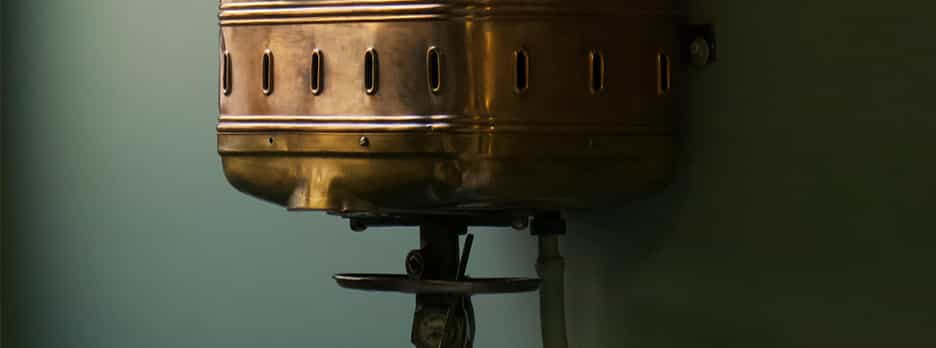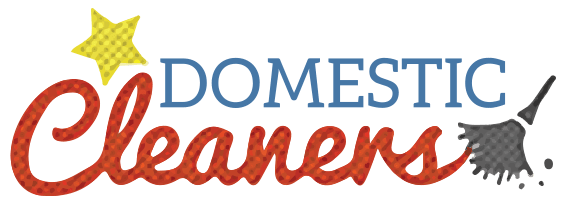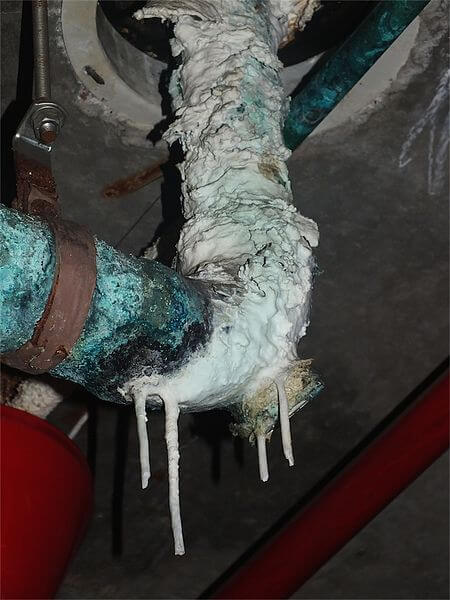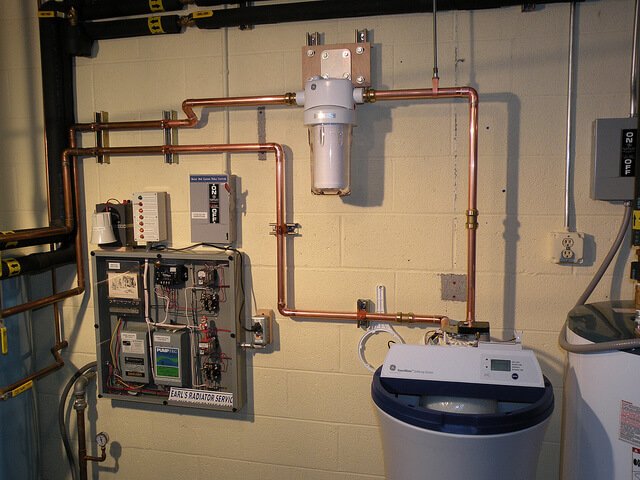How to Clean Boiler Tubes? Techniques & Advice

Cleaning boiler tubes, maintenance, and care are the best way to get the most out of your unit by preventing overdrive and preserving the piping system. Fewer deposits mean healthier pipes that won’t threaten to leak, burst, or further contaminate your heating infrastructure.
The OFTEC, or Oil Fire Technical Association, as well as gas-fired boiler authorities, recommend having your boiler serviced at least once yearly. As professional cleaners, we’ve had many inquiries, but cleaning boiler tubes isn’t really part of your professional cleaner job description.
We can help with multiple high-end services, such as:
- Regular Domestic Cleaning
- One-Off Deep Cleaning
- End of Tenancy Cleaning
- Carpet Cleaning
- Upholstery Cleaning
- Professional Oven Cleaning
- After Builders Cleaning
- Exterior Window Cleaning

Still, we realised it’s a problem we better address. The aim when cleaning boiler tubes is to supply your home with heat while keeping your family safe, right?
Without proper servicing, a boiler running on fossil fuels like gas or oil could expose you to monoxide carbon poisoning. A better understanding of your boiler tube maintenance needs will help you stay on top of your game with home heating safety checks.
Aside from keeping your boiler maintained in its best condition possible, keeping your heating system pipes clean means high-efficiency output. As soon as tubes get clogged, your system will draw more energy to distribute heat through the property.
Naturally, it all boils down to the question of how to clean boiler tubes and as professional cleaners in the UK, we get that a lot!
Your boiler may be one oil-fired, gas-fired boiler, or electrical. Probability has it that your system is the fire-tube type, as this is the most used system in the UK, although some water-tube boilers exist, too. So, in this guide, Star Domestic Cleaners we focus mostly on fire-tube boilers, as over 8 in 10 homes in the UK operate on a gas-fired, fire-tube boiler, but we also list some general techniques on cleaning tubes.
What Boiler Tubes Should You Clean?

In a fire-tube boiler, the tubes on the firing end of your boiler, also called heat exchanger, are the dry tubes keeping the heat source. These typically suffer from soot deposits which can mostly be cleaned manually, using an appropriate brush.
The Easy Boiler Company warns that soot build-up can reduce boiler efficiency by up to 8%. Therefore, looking after this end of your boiler is as important as cleaning the tubes that carry boiling water across your home.
Tubes exiting your boiler carry water that hot tubes inside the heat exchanger heat. They, too, can become dirty because of mineral deposits. Over time, small sediments damage boiler pipes, reduce heating efficiency, and lead to weaker pipes and/or boiler breakdowns.
The flue pipe is also an essential part you need to keep clean at all times. It leads excess gases out of your house through a pipe.
Most flue pipes are horizontal and easy to get to for servicing purposes. Because there are strict regulations around where you should situate a flue pipe (away from human activity), it is essential to have a Gas Safe engineer access it, because for safety reasons.
Professional engineers have the right equipment for each specific section of pipework.
How to Clean Boiler Tubes?

Waterside Tubes
You may have had your heating system power-flushed before, yet you must clean tubes without the use of chemicals before the next power flush.
You can clean the waterside of your boiler using water pressure in-between chemical removals of sludge and rust. This ensures the optimal health of pipes year on year, as it requires a power flush every five years or so.
A tube showing irregularities can be a sign of limescale or corrosion problems. If you find a hard scale on the inside of pipes, valves should be checked and readjusted to prevent foreign steam-water mixing with your boiler’s internal system in the future.
In short, the best way to look after your waterside tubes’ health is prevention. That’s why it is essential to have your boiler serviced and cleaned at regular intervals, getting issues like trapped oxygen fixed before they create bigger problems.
And they almost certainly always will.
Fireside Tubes
As for the fireside tubes, they are more readily accessible and easier to clean. They’re dry, too, allowing for a thorough, no-mess clean with a brush.
The type of brush to be used will vary depending on several factors. The type of deposit will also drive the engineer’s decision to either use a soft nylon brush, a steel brush for scraping sludge or water pressure, or a compressed air device for rust.
Flue pipes
You should have your flue pipe swept by a registered technician at least once a year. Because it ejects fuel gases, they fit it where its releases won’t come into contact with human activity. For this reason, only trained staff should inspect it.
Clean strainers and filters. Once done, your piping system should be as good as new!
Who Carries Out Boiler Cleaning?
It is always best to contact a Gas Safe engineer to have your boiler tubes cleaned. This way you record all servicing call-outs in your logbook, which is recommended for maintenance checks and safeguarding the value of your property. This is often overlooked but can prove an asset the day you want to sell your property.
A registered engineer of your choice will make sure to turn your boiler off, follow all safety regulations while going through the motions of cleaning your boiler tubes. If you own a water-tube boiler, the above recommendations still apply.
Cleaning Techniques & Boiler Tubes

Regardless of the purpose of heated water, be it to heat your home, cook a meal, hygiene, bathrooms, or power, regular cleaning of your tubes from particle deposits is a must, but what techniques can one use?
Acoustic Cleaning of Tubes
It stands for a method that utilises sound waves to disrupt and remove particles deposits of the most common kind, such as ash and your good old grime. It’s done via specialised horns placed strategically nearby or around your boiler. The only catch is its efficiency with dry deposits, meaning that superheaters and systems running 24/7 might have to consider an alternative.
Cleaning Tubes with Water
Water that runs at over 1200 gallons per minute to flush any slag build-ups. It’s used to clear dirt and debris up to 40-feet long tubes via a high-volume, high-power hydro blast device.
Although crazy efficient, not all systems can take the pressure.
Soot Blowers
Some installations can’t handle water cleaning, thus soot blowers come in hand. This cleaning method stands for compressed air or steam is injected into the system. A plus to this solution is that you can use it while your boiler runs.
There are four kinds:
- Long Retractable or insertable kinetic;
- Air heater blower;
- Fixed rotating;
- Wall blowers or insertable rotating.
Build-ups of soot can light up under the heat and thus damage and weaken piping over time up to a point where parts go bad. And what does that mean?
Leaks, mould, and mouldy smells. Besides costly repairs, that is. So, flue gasses take soot build-ups away or built-in soot collectors do it instead. Some have fans built-in by design, while others come with a blower. Some of the latest models have detectors that trigger blowers when soot reaches a pre-defined limit.
Explosive De-slagging
This isn’t a cleaning technique for regular domestic properties, but rather bigger installations that can handle a blast. As the title implies, small explosives create pressure and blast wave to disrupt and remove build-ups down the system.
Cleaning Boiler Tubes, Remarks
Adequate and conscientious maintenance is an absolute must unless you fail and thus risk needing a boiler installation calculator to estimate how much a new unit would cost.

Contact us for professional help.


